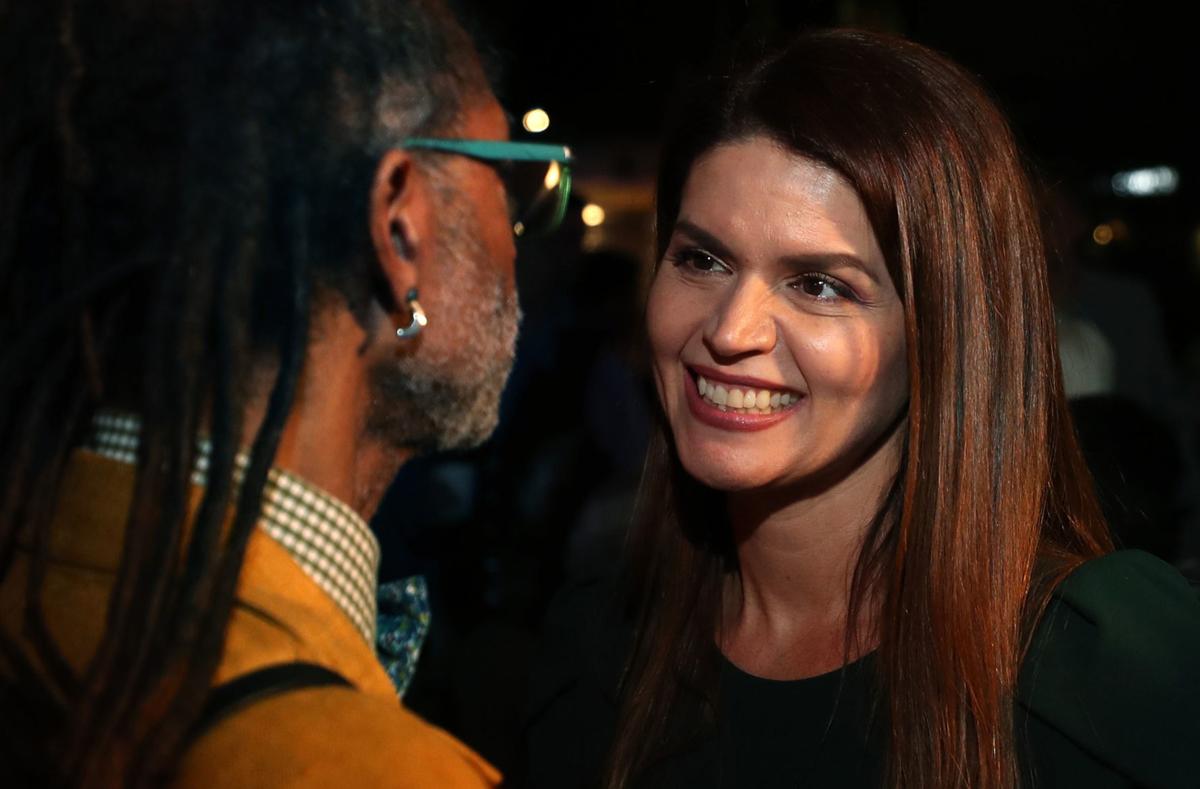The distance from Mayor-elect Regina Romero’s west-side ward office to her new digs at City Hall is about a mile and 10 floors up.
In the coming weeks, movers will, without fanfare, take care of the physical work of transitioning Romero into her new mayoral offices on the 10th floor of City Hall. And when she is sworn in Dec. 2, succeeding Mayor Jonathan Rothschild, Romero will become the first Latina and first woman to hold the city’s top elected office.
And with those “firsts” will likely come increased attention to the office.
Many in the metro area, around the state and nationally — Democratic presidential candidate Elizabeth Warren tweeted congratulations Tuesday night and called her Wednesday — will be watching as Romero takes her first steps as Tucson’s leader.
On Wednesday, Romero talked about her initial plans as mayor and about some of the obstacles facing the city.
Romero, 45, made some lofty promises on the campaign trail, including an integrated citywide plan responding to climate change that would plant 1 million trees over the next decade.
She also pledged to bring a new wave of outside investment into the city while also creating an incentive program for small, locally owned businesses.
Romero, a political veteran who has spent the last 12 years on the City Council and another decade working on various political campaigns, concedes the deck is sometimes stacked against the Democratic-controlled Tucson City Council, including an openly hostile Legislature wielding a state law known as SB 1487.
The state has repeatedly used the law against cities and towns and can withhold funding from municipalities that pass local ordinances that violate state laws.
The city of Tucson lost a fight two years ago with the state over its practice of destroying firearms that have been confiscated or voluntarily turned in to police, with the state requiring the city to auction the guns off to the highest bidder.
As one of her first acts as mayor, Romero said she would like to expand the after-school and summer recreation program known as KIDCO to more schools.
Romero has been fiercely protective of the program for years after she staved off attempts to scuttle it during the recession, when city resources were stretched thin.
“The city of Tucson provides support to working families at schools through our KIDCO program,” Romero said Wednesday, “It doesn’t cost a dime for me to be a huge advocate and lobby our state Legislature and our governor to see continued investment in public education.”
Fighting climate change is more of a moving target, but Romero said she would start the city’s next fiscal year with the goal of identifying ways to invest in sustainable energy solutions.
“If we want to move our economy to a progressive place, if we want to continue investing in our infrastructure, if we want to continue creating high-wage, long-term jobs, we have to tackle climate resiliency in our city,” she said Tuesday night.
“We are the second city that is heating up the most right after Phoenix, and so we’ve got to work immediately on it.”
Arizona Democrats in the U.S. House will be crucial, she says, to finding new sources of revenue to build that infrastructure.
“We have Congresswoman Kirkpatrick on appropriations. We have Congressman Greg Stanton on transportation,” she said. “We need to get in line for our infrastructure projects in our city. And that includes getting grants for solar installation and applying for grants for electric vehicles, electric buses and electric vehicle grid.”
Planting a million trees could take a decade, but Romero concedes she will need buy-in from the entire city.
“We need to also partner with the private sector, which we have been doing,” Romero said.
“We need to up the ante with the private sector because climate resiliency is not just good for the city of Tucson it is good for everyone.”
Romero’s latest political win coincides with the defeat of Proposition 205, which would have made Tucson the state’s first “sanctuary city.”
The measure failed badly, with 71% of voters rejecting it. Romero, like most city leaders, did not support the ballot initiative.
During her victory speech on Tuesday night, Romero vowed to work with the group behind the initiative, the People’s Defense Initiative, as well as others interested in making Tucson an inclusive city that protects all residents regardless of their immigration status.
“The root of the problem is SB 1070 and we’ve got to demand in a unified front, with a unified voice that Gov. (Doug) Ducey and the state Legislature repeal SB 1070,” Romero said.
She has done it before, she notes, when she pushed for passage of the city’s resolution against President Trump’s efforts to build a border wall.
“We sat down and talked to the city attorney, spoke with my colleagues on the council. We talked with the Pascua Yaqui tribe. We talked with Tohono O’odham Nation and with Pima County,” she said. “When you want to get stuff done, it’s a really good idea to sit down and try to hash it out.”
However, putting the city at odds with the Republican-controlled Legislature was a concern of hers if Prop. 205 passed, she said.
Instead, Romero is looking to the 2020 election to undo the damage done by SB 1070 and SB 1487.
“I think that getting elected officials that represent the voters of Arizona are changing. In 2018, Arizona was becoming more and more of a purple state. And so I don’t think the state Legislature reflects the best interests of the voters of Arizona and where we’re headed in terms of policy that we believe in,” she said. “I will work really hard to try and elect people that represent their communities.”





